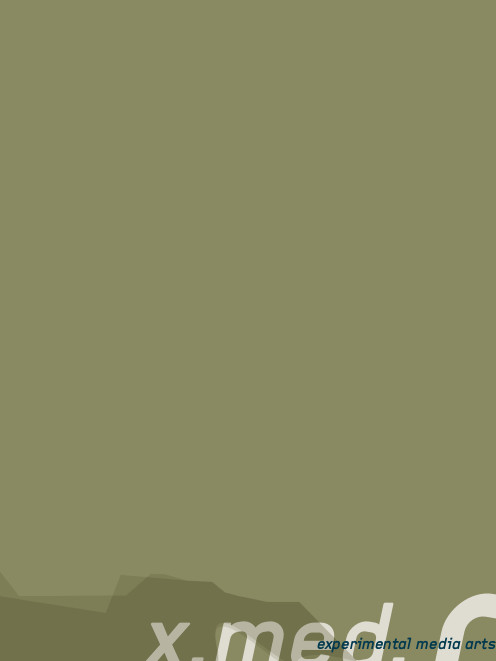FLOSS Manuals (*2006)
Filed under manual | Tags: · floss, software

The FLOSS Manuals (FM) is a non-profit foundation founded in 2006 and based in the Netherlands. The foundation is focused on the creation of quality documentation about how to use free software.
Its web site is a wiki (using the TWiki software) focused on the collaborative authoring of manuals. The documentation is licensed under the GPL. Although initially the manuals were covered by the GFDL, the license was changed due to concerns about the limited and non-free nature of the GFDL.
Anyone can contribute to the material at FLOSS Manuals. Each manual has a maintainer – very much like the Debian maintainer system. The maintainer keeps an overview of the manual and discuss with those interested the structure etc. The maintainer is also responsible for gathering new contributors together. All edits are not ‘live’ – the edits are published to the manual when ready. This is to ensure the quality of the manuals is as high and as reliable as possible and that no new user encounters ‘half finished’ content.
Manuals are available as HTML online, or indexed PDF. Additionally manuals can be remixed so anyone can create their own manual and export to indexed PDF, HTML (zip/tar) or a ‘ajax’ include.
Comment (0)Sherry Turkle: The Second Self: Computers and the Human Spirit, 20th ed. (1984/2005)
Filed under book | Tags: · artificial intelligence, computing, hacker culture, machine, media culture, psychology, software, things, video games

“In The Second Self, Sherry Turkle looks at the computer not as a “tool,” but as part of our social and psychological lives; she looks beyond how we use computer games and spreadsheets to explore how the computer affects our awareness of ourselves, of one another, and of our relationship with the world. “Technology,” she writes, “catalyzes changes not only in what we do but in how we think.” First published in 1984, The Second Self is still essential reading as a primer in the psychology of computation. This twentieth anniversary edition allows us to reconsider two decades of computer culture—to (re)experience what was and is most novel in our new media culture and to view our own contemporary relationship with technology with fresh eyes. Turkle frames this classic work with a new introduction, a new epilogue, and extensive notes added to the original text.
Turkle talks to children, college students, engineers, AI scientists, hackers, and personal computer owners—people confronting machines that seem to think and at the same time suggest a new way for us to think—about human thought, emotion, memory, and understanding. Her interviews reveal that we experience computers as being on the border between inanimate and animate, as both an extension of the self and part of the external world. Their special place betwixt and between traditional categories is part of what makes them compelling and evocative. (In the introduction to this edition, Turkle quotes a PDA user as saying, “When my Palm crashed, it was like a death. I thought I had lost my mind.”) Why we think of the workings of a machine in psychological terms—how this happens, and what it means for all of us—is the ever more timely subject of The Second Self.”
Keywords: personal computer, Speak and Spell, video games, hacker culture, artificial intelligence, Software Wars, Pac-Man, Marvin Minsky, Merlin, Seymour Papert, tic-tac-toe, Dungeons and Dragons, sprite, Tinkertoys, Sherry Turkle, Joseph Weizenbaum, home computer, computer program, pinball, Space Invaders
Publisher MIT Press, 2005
ISBN 0262701111, 9780262701112
372 pages
PDF (updated on 2014-9-15)
Comments (3)X-MED-A: Experimental Media Arts (2006)
Filed under book | Tags: · art, code, experimental art, generativity, media art, media ecology, music, performance, software, sound art, sound recording, technology, textile, video, workshop

“In X-MED-A publication you can find more than 40 contributions from a motley crew of artists, designers and engineers, including Matthew Fuller, Joey Berzowska, Casey Reas, Akihiro Kubota along with many other clever and lovely people. The articles, interviews, poems and patches reflect upon education and play, poetics and aesthetics, technology and collaboration, politics and economics of experimental media arts, steeped in a sea of photographs, diagrams, screenshots and illustrations.
The review originated from a series of technically and artistically diverse workshops, organised by four independent technological arts initiatives in Brussels: FoAM, nadine, okno and iMAL. The workshops responded to the needfor a place where continuous learning and dialogue between peers is encouraged, with the objective of sharing of experience, skills and knowledge among diverse groups interested in emerging ideas, media and technologies.”
Contributions by mxhz.org, Guy van Belle, Angez Bewer, Bartaku, Johanna Berzowska, Nicolas Collins, Alejandra Perez Nunez, Akihiro Kubota, Franziska Huebler, Carole Collet, FoAM, Eleonora Oreggia, Casey Reas and Ben Fry, jasch, David Griffiths, Toplap, so-on, Xavier Ess, Els Viaene and Dieter van Dam, Code31, Nadine, Yves Bernard, HC Gilje, Rachel Wingfield, Christoph de Boeck, Isjtar, Nicolas d’Alessandro, Jelle Dierickx, Jenny Tillotson, Jessica Hemmings, Toysband, Alejo Duque, Erik Parys, Pablo Diartinez
With an introduction by Matthew Fuller
Edited by Maja Kuzmanovic (FoAM), nadine, Annemie Maes (okno), Yves Bernard (iMAL)
Assistant editor: Alkan Chipperfield
Publisher: FoAM, nadine, okno, and iMAL, Brussels, 2006
Creative Commons Attribution-NoDerivs 2.5 License
ISBN 908107332X
156 pages
Project website
Editor (FoAM)
PDF (updated on 2021-12-29)
Comment (0)
